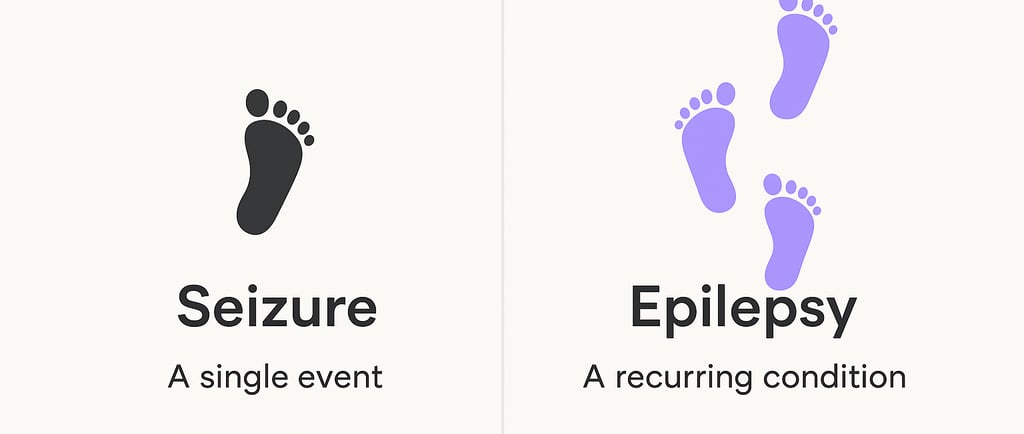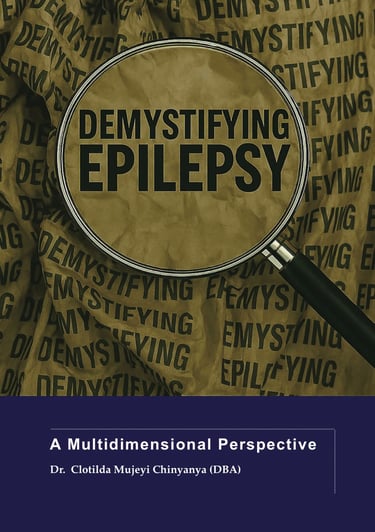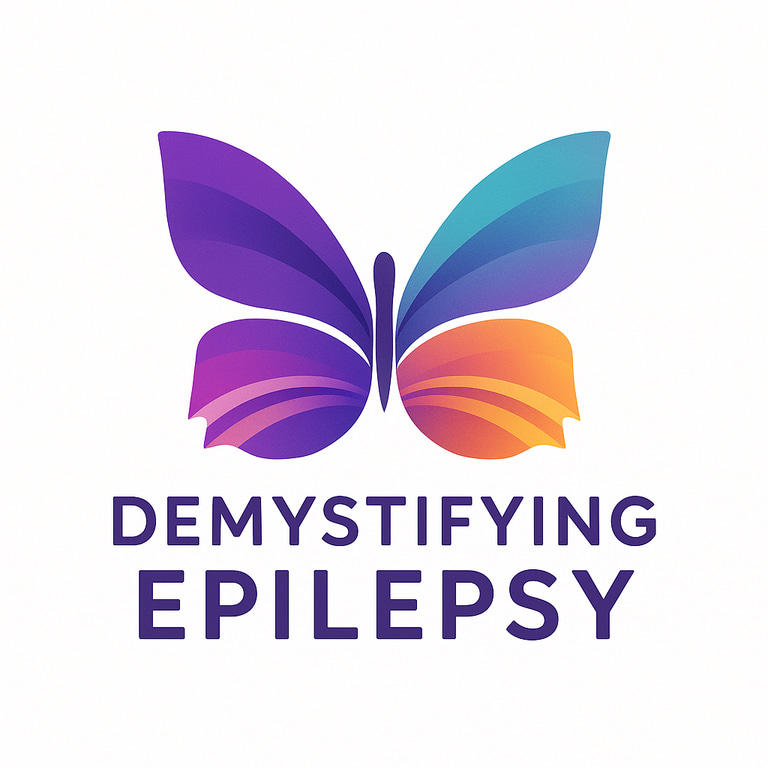The Difference Between Epilepsy and Seizures
Understanding the distinction between a single seizure and the medical condition epilepsy is essential for awareness, advocacy, and support. In this article, we break down the difference in clear, relatable language, helping readers grasp why one event doesn’t define a diagnosis, and why recurring seizures do. Whether you're affected personally, supporting a loved one, or educating others, this post offers clarity without the medical jargon.
Dr. Clotilda Chinyanya
10/4/20253 min read


People often use the words epilepsy and seizures as if they mean the same thing, but they don’t. Understanding the difference isn’t just a matter of vocabulary. It affects how we diagnose, treat, and talk about neurological health. If you’ve ever wondered where the line is drawn between the two terms, this post breaks it down in a clear and human way.
✅ What Is a Seizure?
A seizure is an event, a temporary surge of abnormal electrical activity in the brain. Think of it like a power surge in a house: sudden, disruptive, and sometimes brief.
Seizures can happen to anyone and may be triggered by:
High fever (especially in children)
Head injury or trauma
Low blood sugar
Infections (like meningitis)
Stroke
Brain tumors
Certain medications or substance use
Epilepsy
Not all seizures look the same. Some involve shaking or loss of awareness, while others are subtle, like brief staring, confusion, or muscle twitches.
✅ What Is Epilepsy?
Epilepsy is a neurological disorder characterized by a tendency to have recurrent, unprovoked seizures.
Doctors usually diagnose epilepsy when:
A person has had two or more unprovoked seizures, or
There’s a high likelihood of more seizures after one episode
Epilepsy is a long-term condition, not a one-time episode. People with epilepsy may experience different types of seizures, triggers, and levels of frequency.
✅ Seizure vs. Epilepsy: The Key Difference
Here’s the simplest way to think about it:
Seizure
Epilepsy
A single event or symptom
A condition that causes recurring seizures
Can happen once
Involves ongoing risk
Often triggered by something specific
May not have an obvious trigger
Doesn't always require long-term treatment
Typically needs long-term management
A seizure is an occurrence.
Epilepsy is the medical condition behind repeated seizures.
✅ Can You Have a Seizure Without Epilepsy?
Yes and it’s very common.
People may experience a seizure due to:
Fever (febrile seizures)
Sleep deprivation
Infection
Alcohol or drug withdrawal
Electrolyte imbalance
Trauma or stroke
In these cases, the seizure is a reaction to something temporary, not a lifelong condition.
✅ Can You Have Epilepsy Without Frequent Seizures?
Absolutely. Many people with epilepsy manage their condition so well that seizures are rare or don’t occur for years.
This may be due to:
Anti-seizure medications
Lifestyle adjustments
Trigger avoidance
Surgical treatment (in some cases)
So, while epilepsy involves the potential for recurring seizures, it does not mean a person constantly experiences them.
✅ How Do Doctors Tell the Difference?
Diagnosing epilepsy vs. a single seizure involves several steps:
Medical history: What happened before, during, and after the event?
Neurological exam: Checking reflexes, coordination, and brain function
EEG (electroencephalogram): Measures brain activity
MRI or CT scan: Looks for structural causes
Bloodwork: Identifies metabolic or infectious triggers
A one-time seizure may not lead to an epilepsy diagnosis especially if it has a clear cause.
✅ Treatment: One Event vs. Ongoing Condition
For a single seizure, treatment may focus on the trigger and prevention. Long-term medication isn’t always necessary.
For epilepsy, treatment often includes:
Prescription anti-seizure medication
Avoiding known triggers (e.g., flashing lights, sleep loss, dehydration)
Dietary therapy (like the ketogenic diet)
Vagus nerve stimulation (VNS)
Surgery (in select cases)
Lifestyle support and education
Management is tailored to each person’s type of epilepsy and health goals.
✅ Why the Distinction Matters
Understanding the difference helps:
Reduce stigma - not everyone who has a seizure has epilepsy
Encourage accurate conversations - language shapes perception
Improve treatment decisions - proper diagnosis leads to proper care
Support people better - families, schools, and workplaces benefit when they know the facts
Using the right terminology empowers both individuals and communities.
✅ Final Takeaway
A seizure is an episode.
Epilepsy is a condition that makes seizures more likely over time.
Not every seizure means epilepsy and not everyone with epilepsy has constant seizures. Awareness and accurate understanding help create safer, more supportive spaces for everyone affected.


